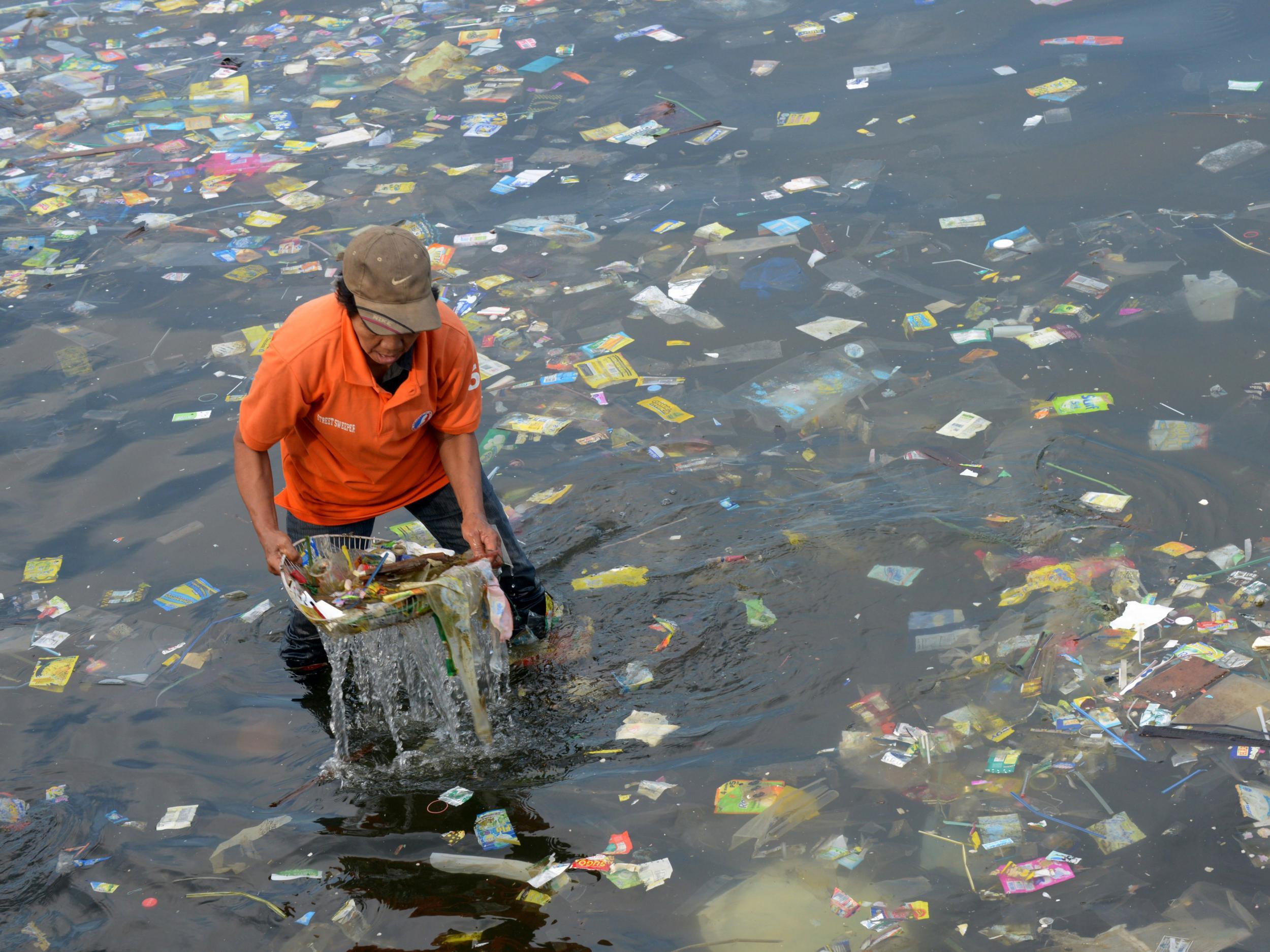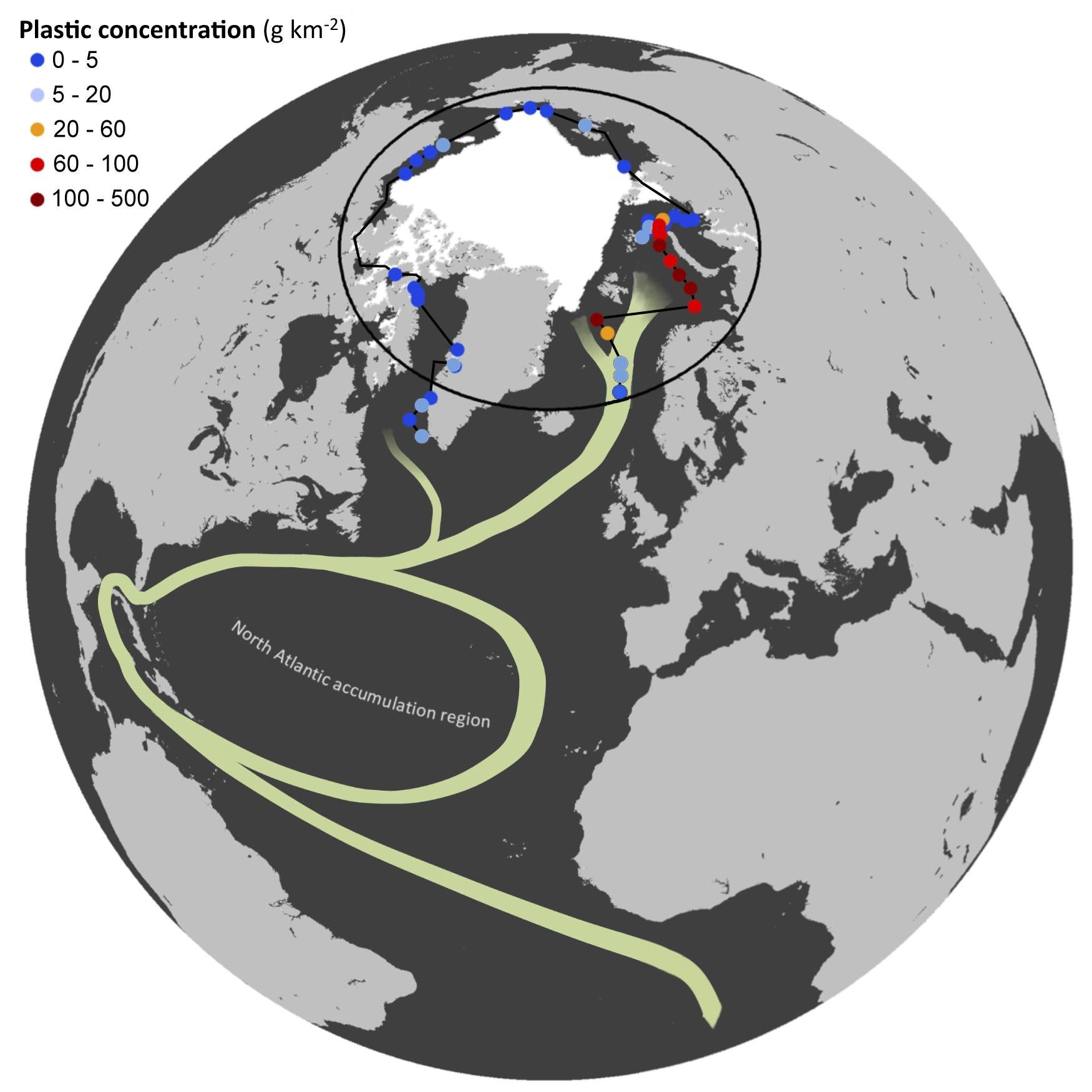Greenpeace calls for action as huge rubbish islands reach Arctic circle
Research shows there are two major build ups of rubbish in the Arctic in so-called 'dead ends' in the Greenland and Barents seas

Greenpeace has called on companies to act after scientists revealed huge rubbish islands have reached the Arctic circle.
The environmental campaign group has called for “an end to the age of throwaway plastic” as scientists warned there were two major “dead ends” in the Barents and Greenland seas.
This is where plastic debris had gathered into islands after being transported thousands of miles by ocean currents.
Louisa Casson, an oceans campaigner at the charity, told The Independent: “Not even the planet’s most pristine landscapes are safe from the blight of plastic pollution. Once plastic gets into the ocean, it travels on currents to all corners of the world, from Pacific islands to Arctic sea ice, threatening marine life along the way.
“This new research should act as an urgent warning to businesses and governments that we need to end the flow of plastic into the ocean.”
She said this would mean ditching single-use plastic, companies developing more innovative ways to use packaging and the government stepping in to encourage the greater reuse of materials.
“It is clear that if we’re going to protect our oceans, we need to end the age of throwaway plastic,” she added.
The paper, published in the journal Science Advances last week by an international team of scientists lead by Dr Andres Cozar of Cadiz University in Spain, described how they had sailed through the ice-free waters of the Arctic looking for plastic.

In most areas, there was relatively little plastic to be found with 37 per cent of net tows producing none at all – though the sampling system did not pick up items smaller than 0.5mm or plastic microfibres, produced on a large scale by synthetic clothing.
From this they made an estimation of the amount of plastic in the area at between 100 and 1200 tonnes.
The paper said: “Plastic debris was abundant and widespread in the Greenland and Barents seas.
“The fragmentation and typology of the plastic suggested an abundant presence of aged debris that originated from distant sources.”
The researchers said the ocean currents made each of these areas a “dead end for the plastic conveyor belt” and said the seas between Scotland and Iceland were a “major gateway for the delivery of Atlantic plastic to the Arctic”.
They speculated that there may be even more plastic in areas they surveyed which they were unable to reach because it had sunk to the bottom of the sea.
The study demonstrated the “global scale of marine plastic pollution and the role that global oceanic circulation patterns play in the redistribution of these persistent pollutants”.
“The uniqueness of the Arctic ecosystem makes the potential ecological implications of exposure to plastic debris of special concern,” the paper said.
Previous studies have suggested there could be more plastic than fish in the Arctic seas by 2050.
An estimated 12.7 million tonnes of plastic are dumped in the ocean every year.
Some governments have already taken steps to reduce the amount of plastic its companies produce.
The five pence charge on single plastic bags came into force in the UK at the end of 2015.
Since it was introduced it is estimated to have saved six billion bags being used and reduced the number abandoned on public beaches by 40 per cent.
Join our commenting forum
Join thought-provoking conversations, follow other Independent readers and see their replies
Comments
Bookmark popover
Removed from bookmarks